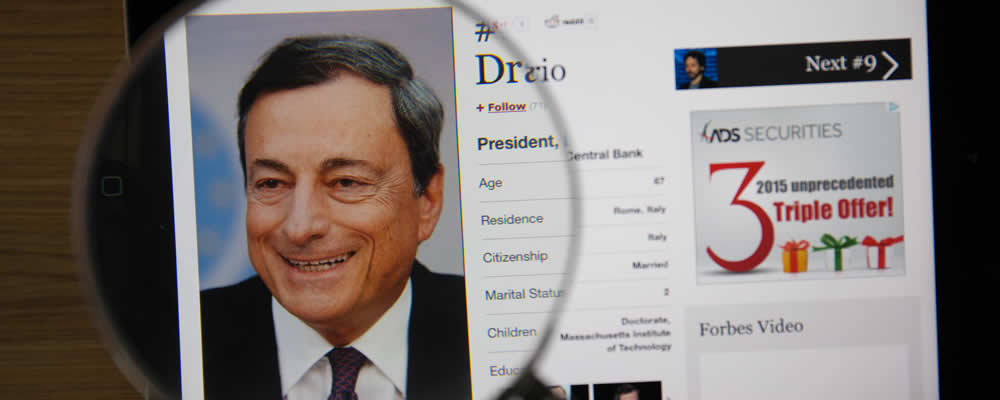- Euro Pound Exchange Rate Above 0.89 – Holding ground near best 2017 levels
- European Central Bank (ECB) Speculation Spikes – ECB may announce QE withdrawal in autumn
- EUR Forecast: Eurozone PMIs in Focus – Plus French and Spanish growth data
- GBP Forecast: UK Growth Projection Ahead – How did UK economy perform in Q2 2017?
Sterling put in a brief and limited recovery attempt during Friday’s European session, but towards the end of the day the Euro Pound exchange rate traded closely to the week’s 2017 high of 0.8989.
The day’s ecostats had little influence on the Euro or the Pound throughout the day.
The Euro could see some quick losses on Monday morning if any European Central Bank (ECB) officials take dovish stances on monetary policy over the weekend or attempt to downplay the hawkishness of President Draghi’s forward guidance.
[Published 11:32 BST 21/07/2017]
The Euro Pound exchange rate could be on track to end this week’s trade session near its best levels all year, as investors react to fresh comments from European Central Bank (ECB) President Mario Draghi and the latest Brexit concerns.
EUR GBP has put in some strong gains this week. The pair advanced from the week’s opening level of 0.8755 and by Friday morning had hit its best level since November 2016, 0.8987. EUR GBP seems to be holding its ground above 0.89.
Euro (EUR) Surges as Investors Speculate European Central Bank (ECB) Action
This week’s European Central Bank (ECB) meeting was just the excuse Euro hawks needed to buy up the shared currency, boosting the currency through psychological resistance.
The biggest takeaway from the ECB meeting were comments made by ECB President Mario Draghi during a press conference. Draghi indicated the bank was likely to discuss the future of its quantitative easing (QE) scheme sometime in the autumn.
Draghi’s overall dovish tone and the lack of any changes in the bank’s official policy statement was overlooked as investors focused on the possibility of action being announced before the end of the year.
Some predict the ECB may hold off any plan announcements until December, but others are taking a more hawkish stance. According to Bob Parker from Quilvest Investment Management;
‘Investors believe that the ECB QE programme will go to €40bn per month during the fourth quarter of 2017 [from €60bn today] and that the negative deposit rates will go.
This has been my view for the last three months and I assume that QE will end in 2Q18 [the second quarter of 2018].’
However, amid the market’s Euro hawkishness this week, some analysts have noted that the Euro’s recent strength could prove to be an obstacle for Eurozone inflation and the ECB.
Pound (GBP) Fails to Hold its Ground Amid Lack of Strong Data
The Pound has seen consistently poor performance throughout this week as UK ecostats fail to meet expectations and Brexit concerns hit headlines once again.
UK inflation fell short, hurting Bank of England (BoE) tightening bets. UK retail sales were better than expected but indicated the retail sector had seen overall flat performance for the first half of 2017.
Lastly, Friday saw the publication of Britain’s June public sector net borrowing report which disappointed once again. According to PwC chief economist John Hawksworth;
‘June saw a modest deterioration in public finances, with borrowing around £2 billion higher than a year earlier. This followed two months in which the deficit was almost identical to the year before. The general pattern is consistent with the OBR’s March forecast that we might see some increase in the budget deficit this financial year, as the economy slows and some one-off favourable factors from last year unwind.’
On top of economic concerns, investors were also spooked by comments from Liam Fox, Britain’s trade minister.
Fox argued that while it was likely to be very easy to make a post-Brexit UK-EU trade deal, Britain would be able to cope without one if it came to that.
Fox’s indication that the Brexit process could end without any UK-EU trade deal worsened Brexit jitters and the Pound became even less appealing.
Euro Pound Forecast: Eurozone PMIs in Focus
The Euro Pound exchange rate is likely to end the week close to its best 2017 levels, but analysts continue to warn that the Euro is overvalued.
The shared currency’s recent gains rely on the assumption that the European Central Bank (ECB) will announce some kind of quantitative easing (QE) withdrawal before the end of the year.
Any indication that the bank could instead extend the QE would lead to a big Euro selloff. Any comments from ECB officials over the next few weeks attempting to downplay ECB President Draghi’s latest comments would also potentially cause the Euro to drop from its recent highs.
Next week will see the publication of a slew of influential Eurozone ecostats. Markit’s preliminary July PMIs for the bloc will be published on Monday and will indicate how the economy is performing this month. If these fall short of expectations, the Euro could fall.
As for Sterling, more optimistic Brexit developments would boost the Pound but the currency could also find new support if next Wednesday’s Q2 Gross Domestic Product (GDP) projections beat analyst expectations.
EUR GBP Interbank Rate
At the time of writing this article, the Euro Pound exchange rate trended in the region of 0.8950. The Pound to Euro exchange rate traded at around 1.1168.



